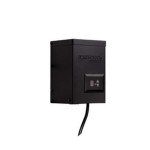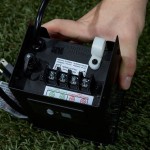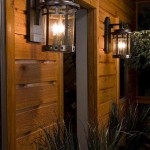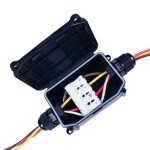What Happens If An Outdoor Extension Cord Gets Wet?
Extension cords are a common tool for many homeowners, providing a temporary power source for various outdoor tasks. However, their use outdoors presents a potential hazard – exposure to moisture. While many extension cords are marketed as "weatherproof" or "outdoor rated," it is important to understand that even these cords can be vulnerable to damage when exposed to rain, snow, or excessive humidity. This article explores the potential consequences of a wet outdoor extension cord, outlining safety precautions and highlighting the potential dangers involved.
Electrical Shock
The most immediate and serious danger posed by a wet extension cord is the risk of electrical shock. Water is an excellent conductor of electricity, and when it comes into contact with exposed wires or a damaged cord, it can create a pathway for current to flow. If a person comes into contact with the wet cord, or a device plugged into it, they could receive a severe electric shock. The severity of the shock depends on several factors, including the voltage of the current, the duration of contact, and the individual's physical condition. A shock can cause burns, muscle spasms, cardiac arrhythmia, and even death.
Fire Hazard
Beyond the risk of shock, a wet extension cord also poses a fire hazard. The combination of moisture and exposed wires can lead to arcing, which is the creation of a spark when electricity jumps across a gap. Arcing can ignite nearby combustible materials, resulting in a fire. Factors contributing to the risk include the cord's age, the presence of damage, and the type of insulation used. Older cords, particularly those with frayed or cracked insulation, are more susceptible to moisture penetration, creating a higher risk of sparking.
Damage to Appliances and Devices
In addition to the risks of shock and fire, getting an extension cord wet can also damage the appliances or devices plugged into it. Water can penetrate the electrical components of these devices, causing shorts, malfunctions, or even permanent damage. The extent of the damage depends on the type of device, the amount of water exposure, and the time it takes to dry the device completely, if possible. The risk of damage is higher for electronic devices that are particularly sensitive to moisture, such as computers, TVs, and power tools.
Preventing Electrical Hazards from Wet Extension Cords
Several precautions can minimize the risk of electrical hazards associated with wet extension cords. These include:
- Using outdoor-rated extension cords: These cords are designed with weather-resistant materials, including thicker insulation and waterproof plugs, to withstand damp conditions. However, even outdoor-rated cords are not invincible, and should not be used in extremely wet conditions or submerged in water.
- Inspecting extension cords regularly: Examine cords for signs of damage, including frayed insulation, exposed wires, cracked plugs, or loose connections. Damaged cords should be repaired or replaced immediately.
- Unplugging cords when not in use: Wet cords should be unplugged and allowed to dry completely before use. Keep in mind that simply wiping down a wet cord is not enough to ensure it is safe – moisture can penetrate the insulation and remain trapped inside. It is generally best to avoid using an electrical device if you are unsure about the safety of the extension cord.
- Using surge protectors: Surge protectors can help protect appliances and devices from damaging voltage spikes and surges, reducing the likelihood of damage even if the cord is wet. However, a surge protector does not eliminate the risk of electrical shock or fire.
- Avoiding extension cords with exposed wires: Extension cords with exposed wires are extremely dangerous since they can easily conduct electricity. If you need to use an extension cord, choose those with fully enclosed wires.
Understanding the Dangers of Extension Cords
Extension cords should be treated with caution, particularly in outdoor environments. It is essential to understand the potential dangers associated with wet cords, including the risk of electrical shock, fire, and damage to appliances. By adhering to safety precautions and taking steps to prevent moisture exposure, homeowners can minimize these risks and ensure the safe use of extension cords for outdoor tasks.
Always prioritize safety and exercise caution when using extension cords. If you are unsure about the safety of an extension cord, or if you have any concerns, it is best to consult with a qualified electrician.

What Happens If An Extension Cord Gets Wet Transformer Avr Panther S Es

What Happens If An Extension Cord Gets Wet Transformer Avr Panther S Es

Can Extension Cords Get Wet

What Happens If An Extension Cord Gets Wet Transformer Avr Panther S Es

Can Outdoor Extension Cords Get Wet Find Out Now Upgradedhome Com
Can You Leave Outdoor Extension Cords In The Rain Quora
Can You Leave Outdoor Extension Cords In The Rain Quora

How To Tell If An Extension Cord Is Safe Use Outdoors
Should You Keep Outdoor Extension Cords Plugged In When It Rains Quora

What Happens If An Extension Cord Gets Wet Transformer Avr Panther S Es
Related Posts







